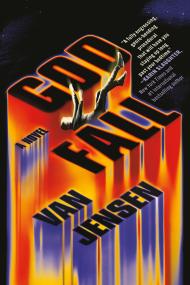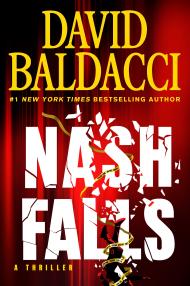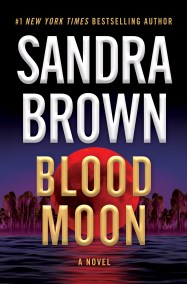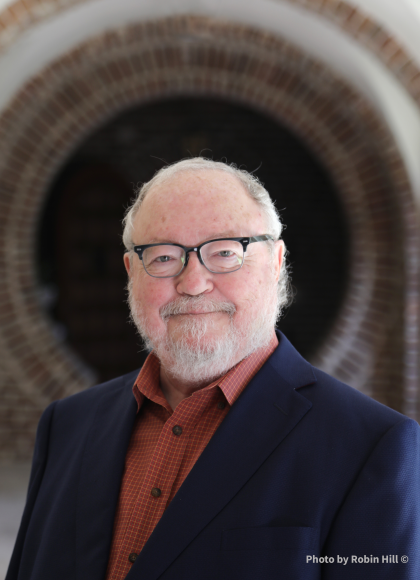By clicking “Accept,” you agree to the use of cookies and similar technologies on your device as set forth in our Cookie Policy and our Privacy Policy. Please note that certain cookies are essential for this website to function properly and do not require user consent to be deployed.
Cari Mora
A Novel
Contributors
Formats and Prices
- On Sale
- Sep 22, 2020
- Page Count
- 320 pages
- Publisher
- Grand Central Publishing
- ISBN-13
- 9781538750124
Price
$16.99Price
$22.99 CADFormat
Format:
- Trade Paperback $16.99 $22.99 CAD
- ebook $10.99 $13.99 CAD
- Audiobook Download (Unabridged)
This item is a preorder. Your payment method will be charged immediately, and the product is expected to ship on or around September 22, 2020. This date is subject to change due to shipping delays beyond our control.
Buy from Other Retailers:
A resilient young woman must outwit a sadistic psychopath in this pulse-pounding thriller from the author of The Silence of the Lambs, a “master still at the top of his strange and chilling form” (Wall Street Journal).
Twenty-five million dollars in cartel gold lies hidden beneath a mansion on the Miami Beach waterfront. Ruthless men have tracked it for years. Leading the pack is Hans-Peter Schneider. Driven by unspeakable appetites, he makes a living fleshing out the violent fantasies of other, richer men.
Cari Mora, caretaker of the house, has escaped from the violence in her native country. She stays in Miami on a wobbly Temporary Protected Status, subject to the iron whim of ICE. She works at many jobs to survive. Beautiful, marked by war, Cari catches the eye of Hans-Peter as he closes in on the treasure. But Cari Mora has surprising skills, and her will to survive has been tested before.
Monsters lurk in the crevices between male desire and female survival. No other writer in the last century has conjured those monsters with more terrifying brilliance than Thomas Harris. Cari Mora, his sixth novel, is the long-awaited return of an American master.
Twenty-five million dollars in cartel gold lies hidden beneath a mansion on the Miami Beach waterfront. Ruthless men have tracked it for years. Leading the pack is Hans-Peter Schneider. Driven by unspeakable appetites, he makes a living fleshing out the violent fantasies of other, richer men.
Cari Mora, caretaker of the house, has escaped from the violence in her native country. She stays in Miami on a wobbly Temporary Protected Status, subject to the iron whim of ICE. She works at many jobs to survive. Beautiful, marked by war, Cari catches the eye of Hans-Peter as he closes in on the treasure. But Cari Mora has surprising skills, and her will to survive has been tested before.
Monsters lurk in the crevices between male desire and female survival. No other writer in the last century has conjured those monsters with more terrifying brilliance than Thomas Harris. Cari Mora, his sixth novel, is the long-awaited return of an American master.
-
"The best of Harris's work, and this includes his latest, long-awaited novel, Cari Mora, has just that feeling of absolute, unquestionable reality. Through a combination of elements -- a perfectly realized authorial voice, the steady accumulation of terrible details, an empathetic vision of lost and damaged souls -- Harris has created a sense of dreadful intimacy that we cannot escape, that forces us to gaze at unthinkable things, and never look away. No one has illuminated this kind of darkness more thoroughly or effectively than Harris. It seems unlikely that anyone ever will."Washington Post
-
"This page-turner begins intensely, builds in suspense then executes a high-action finale . . . Harris writes in cinematic takes and doesn't waste words . . . a good, fiendish read."USA Today
-
"A less accomplished or ambitious writer might have crafted a worthy thriller with only one or two of the story strands that Mr. Harris weaves; but the several plot elements in Cari Mora are always in fine balance, as befits the work of a unique master still at the top of his strange and chilling form."Wall Street Journal
-
"[Cari Mora] is delectable . . . as well as smart and tough and emotionally and physically scarred, all of which makes her a worthy adversary for the various monsters."New York Times
-
"Cari Mora is Harris' response to the Me Too movement. He already has proven his mastery of complex female characters in the form of Clarice Starling, but the protagonist and title character here takes things to another level . . . The result is a novel that is extremely well-written from start to finish and gives us a heroine to both root for and respect."Bookreporter.com
-
"[Thomas Harris's] latest is another penetrating exploration of signature themes -- the nature of evil, the persistence of trauma, and the strange, fateful gravity that so often seems to exist between individuals on either side of law and morality . . . It's an electric setup, and Harris handles the suspense as finely as you would expect from one of the genre's foremost practitioners. Cari Mora will keep readers up all night in the best possible way."CrimeReads
-
"Harris builds the plot skillfully, with violence and betrayal punctuated by moments of calm and reminiscence. The contest for the gold turns into a fight for survival that rockets to the final pages. Cari Mora is a pulse-pounding thriller, and Cari is an engagingly badass character."Tampa Bay Times
-
"Cari Morais at its best as a sustained meditation on the ineffable extent of humankind's capacity for brutality in the name of personal gain . . . carries an irony befitting Harris's ongoing consideration of how light and dark are often interchangeable."Slant Magazine
-
"It's vintage Harris, with nice twists and elegant ways of expressing just how bad bad people can be . . . Refreshingly, entertainingly creepy and with nary a fava bean in sight."Kirkus Reviews
-
"The heist story that makes up the bulk of Cari Mora is inventive and crisp, with a prose style that owes less to the floridness of the last two Hannibal novels than it does to the late and much-lamented Elmore Leonard."Slate
-
"Harris explores the dark side of human passion in this pulse-pounding novel. His first book in 13 years,Cari Mora will not disappoint fans of disturbing, taut thrillers."BookPage
-
"For Thomas Harris fans, Cari Mora will be comfort food: whimsically brutal and odd and silly, lacking only Hannibal's signature cannibalism."Oregonian
-
"With Cari Mora, Harris does what he does best -- takes us on a spine-tingling, edge-of-your-seat ride steeped in intrigue and nail-biting suspense. You will not sleep. You will not eat. This book screams to be devoured in one sitting."Pittsburgh Post-Gazette
-
"There is no doubting that Mr. Harris is the undisputed king of memorable grotesquerie . . . one has no choice but to recommend Mr. Harris's highly skilled performance."East Hampton Star
-
"Harris's characters are interesting, and his meticulous research impressive . . . an adept novel."Winnipeg Free Press
-
"A fantastic novel and character study of a survivor."Monsters, Madness and Magic
-
"Read this book to escape for a couple nights into the darkest of worlds."Aleo Review of Books
Newsletter Signup
By clicking ‘Sign Up,’ I acknowledge that I have read and agree to Hachette Book Group’s Privacy Policy and Terms of Use







